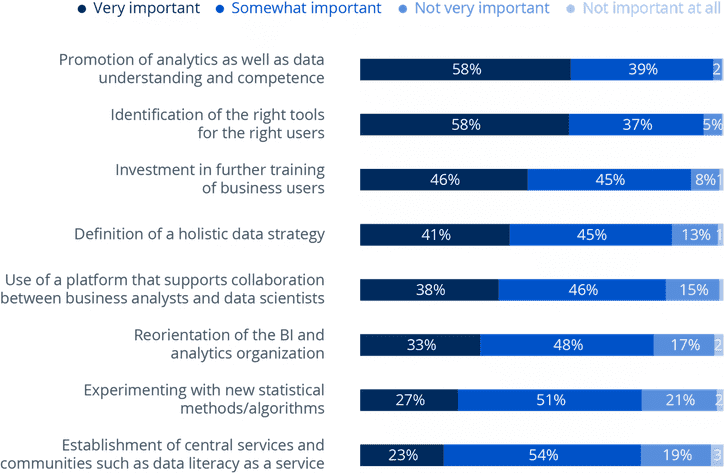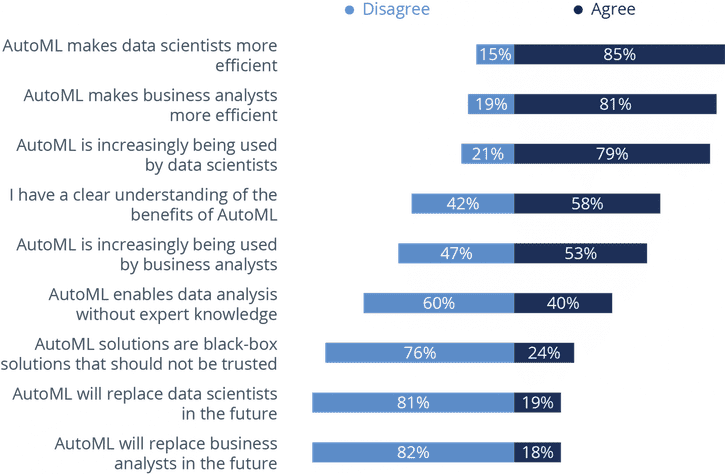Advanced Analytics Will Gain Traction – but Only if Data and Analytics Literacy Keeps Up
BARC-Studie „The Future of Analytics“ published
- Implementing analytics requires a mix of the right technology, education, strategy and internal marketing
- Automated machine learning and augmented analytics can support experts but will not replace data science teams in the future
- Data management and analytics literacy needs to be improved
BARC releases the results of its new topical survey “The Future of Analytics”. The global survey gives insights into current use of advanced analytics and sheds light on its future development in terms of its role for companies, relevant user groups, processes and technologies. The study is available for download free of charge thanks to sponsorship by Dataiku, Qlik and Tableau.
Tools, skills and strategy drive advanced analytics forward
Although advanced analytics has been a hot topic for several years now, promoting it within the organization is the top priority for its successful use. 97 percent of survey respondents regard it as important to promote analytics, as well as data understanding and competence, within their company. Having the right tools for the right users is rated as the second most important requirement (95 percent).

Another important point is the definition of a holistic data strategy. In terms of future investment priorities, improving data management is rightly seen as a top priority by 64 percent of respondents. “It is not surprising that improved data management is considered a success factor and an investment priority,” said Alexander Rode, Analyst and Data Scientist at BARC and co-author of this survey. “Advanced analytics requires access to data for entire new user groups, making new data sources accessible and establishing relationships between data beyond traditional data warehouse models.”
AutoML makes data scientists and business analysts more efficient – but won’t replace them any time soon
With automated machine learning applications (AutoML), mathematical models are trained, optimized and evaluated automatically on the basis of data selected by humans. More than 80 percent of respondents see AutoML solutions as a way to make business analysts and data scientists more efficient. But expert knowledge is still required to use these solutions and interpret results. While 79 percent of respondents see AutoML being increasingly used by data scientists, only 53 percent see business analysts, who often lack deep statistical knowledge, using these tools.

Only 20 percent anticipate that the roles of data scientist and business analyst will be replaced by automated machine learning solutions. “This makes sense as there are many analytical tasks that require human intervention, such as problem formulation, selection of the right method and error measure, and interpretation of results,” explained Rode. “Data science still requires human input on, for example, the definition of use cases, the evaluation of results and decisions about whether to operationalize a prototype and integrate solutions into the organization.”
About The Survey
“The Future of Analytics” is a BARC market research study that examines the future prospects for the development of advanced analytics in terms of its role for companies, relevant user groups, processes and technologies. It is based on a worldwide survey of 317 companies of various sizes and industries. The authors of the study are BARC Analysts and Data Scientists Dr. Sebastian Derwisch and Alexander Rode.
See the infogaphic here and download the survey here free of charge.
